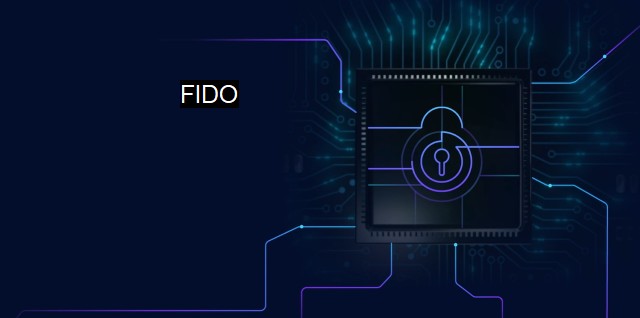What is FIDO?
Exploring FIDO: The Revolutionary Technology For Enhancing Online Security
In the cybersecurity and antivirus scene, "FIDO" refers to the Fast Identity Online (FIDO) Alliance, an open industry association that provides standards for simpler and stronger user authentication suiting web services and web applications needs. Founded in July 2012, the consortium seeks to curb the world's over-reliance on passwords for web-based security, replacing them with an innovative and secure protocol for establishing strong, cryptography-based credentials to authenticate users.FIDO encompasses two sets of specifications for passwordless and multi-factor authentication, the Universal Authentication Framework (UAF) and the Universal Second Factor (U2F). The UAF method creates a passwordless experience, and in place of a password, it provides biometric identification, like fingerprints or voice recognition. On the other side, U2F precisely introduces a stronger two-factor authentication in which a user retains a password but adds a secondary layer of security through a physical device such as a security key, or biometric recognition, imparting an additional countermeasure to cyberattacks.
FIDO pivots around public key cryptography to provide stronger security. When a user registers with an online service, the user's client device creates a new key pair. It retains the private key securely, and the public key is registered with the online service. Authentication is done by the client device proving possession of the private key to the service by signing a challenge. The client's private keys can be used only after they are unlocked locally on the device by the user. The local unlock is executed by a user-friendly and secure action such as swiping a fingerprint, entering a PIN, speaking into a microphone, inserting a second-factor device or pressing a button.
The FIDO protocol is intentionally designed to provide privacy. The protocols use a method that ensures that biometric data never leaves the user’s device as it only stores and processes locally, reducing any potential security threats. It is rendered in such a way that user authentication happens without relying on third-party servers, meaning that tracking user's online activities becomes nearly impossible. The larger vision of FIDO's architecture is to provide users the convenience of having only one local authenticator to leverage multiple online services one engages.
Insurance against widespread hacking has been a primary virtue of FIDO protocols. Because every service provider manages their set of cryptographic keys, the compromising of one service does not compromise other services too where the same user is registered. This defiance against revealing leaks substitutes a single authentication 'master key' per device model into providing a unique per user-device pair key which brings multitudes of security payoffs.
Currently, several big tech companies, including Google, Facebook, and Microsoft, use or support FIDO specifications for their services amid increasing incidents of cyber theft and fraud. The potential that FIDO-equipped systems provide is significant in offering accessible security for internet users in their activities such as online banking, e-commerce transactions, and accessing work apps from smartphones and personal computers.
The effort to phase out password-based security models is increasing. The cybersecurity community's reliance on FIDO standards is a testament to those efforts as it manifests a fundamental change in the method we perceive and practice cybersecurity norms. Embracing FIDO protocols can help not only in tightening security but also in empowering users in terms of privacy, control, and ease. As cybersecurity threats continue to be sophisticated, we can rest assured that standards and specifications provided by FIDO are evolving and adapting, putting forward a promising future of digital safety and robust web authentication mechanisms.

FIDO FAQs
What is Fido in cybersecurity?
FIDO (Fast Identity Online) is an industry alliance that aims to tackle the challenge of authentication by developing open and interoperable standards for strong authentication.What is Fido Alliance?
FIDO Alliance is an industry association that aims to address the need for a strong and secure online authentication framework. It develops open technical specifications for authentication methods and protocols to seek greater security, privacy, and convenience.What are the benefits of using FIDO-certified products?
FIDO-certified products provide greater security and convenience to users. They ensure that the user's identity and data are protected from cyber threats. They also offer a hassle-free experience with easy-to-use authentication methods.How does FIDO technology work in antivirus software?
FIDO technology can be integrated with antivirus software to provide additional layers of authentication and protection. It allows users to authenticate themselves using biometrics, such as fingerprints or facial recognition, instead of traditional passwords. This reduces the risk of data breaches and cyber attacks.| | A | | | B | | | C | | | D | | | E | | | F | | | G | | | H | | | I | | | J | | | K | | | L | | | M | |
| | N | | | O | | | P | | | Q | | | R | | | S | | | T | | | U | | | V | | | W | | | X | | | Y | | | Z | |
| | 1 | | | 2 | | | 3 | | | 4 | | | 7 | | | 8 | | |||||||